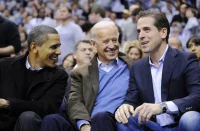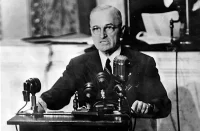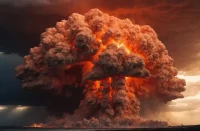The failure of the well-publicized summer counter-offensive by Ukrainian forces, the huge losses of NATO-supplied personnel and military equipment, the depletion of mobilized reserves as well as the declining confidence in victory over the Russian army are forcing Western politicians to find a way out of the Ukraine crisis that is acceptable to NATO countries. Besides, more and more Western politicians have been brought to realize that economic sanctions and the threat of isolation have been unsuccessful in forcing Moscow to abandon the military operation and make political/territorial concessions. Fatigue from the long-running war, enormous financial and material costs in helping Ukraine, economic downturn, inflation and the energy crisis, which are also causing discontent among the peoples of Western countries, are contributing to political debates in Western society about the hopeless containment policy towards Russia.
In this context, it is interesting to note that Vivek Ramaswamy, one of the best-informed Indian-American politicians seeking the Republican Party’s nomination for the 2024 presidential race, spoke to the famous political commentator Tucker Carlson and outlined a number of concrete proposals for a negotiated settlement of the crisis to end it. His arguments stand in stark contrast to the escalating rhetoric of his colleagues from neo-conservative wing, led by Mike Pence, and are more detailed than proposals put forward earlier by Ron Desantis.
The first part of his plan recognizes Moscow’s full control over its sovereign territories in Donetsk and Luhansk, home to a largely ethnic Russian population that considers itself an integral part of Russia. The recognition of these territories for Russia is therefore a basic principle in any proposal for a peace agreement, as are the areas of Kherson and Zaporizhzhya Regions adjacent to Crimea and held by Russian troops. The imperative is that Crimea, with its naval base in Sevastopol and the Crimean Bridge connecting the peninsula to the mainland, be recognized as Russian land.

No prominent Republican has yet supported Ramaswamy’s conclusions openly, even though the very recognition of Russian control over these territories is based on a realistic analysis.
The second point of the settlement should be “a firm commitment on the part of the West that NATO will never take Ukraine as a member”. In his view, it is reasonable to accept Moscow’s legitimate security interests. Russia is a great nuclear power with its own sphere of influence that must be respected, so the current war in Ukraine has no military solution. Providing security guarantees to Ukraine under Article 5 of the NATO Charter is politically and strategically impossible. Moscow will never agree to this. Such a move would contribute to a deeper involvement of European countries in a military conflict with Russia.
Given that Ukraine itself is not vital to the US, Mr. Ramaswamy argues that the main obstacle to its NATO membership is the reluctance of America to become deeply involved in this dangerous situation. But with regard to Kiev, Washington should limit itself to “[respecting] all previous US obligations”.
Mr. Ramaswamy also notes that Europeans have largely benefited from US policy in the post-Cold War environment, and they (Germans in particular) must take responsibility for their own defense. Washington’s transfer of European security leadership is a necessary catalyst for transforming the continent’s security architecture into a more sustainable construct. This could help to build a new European consensus. France, Germany, Italy and other Western European countries could form a sub-group within NATO that would allow them to prioritize common problems, such as security issues in North Africa and the need to stem the large numbers of illegal migrants crossing the Mediterranean.
Meanwhile, a much more stable situation in Central and Eastern Europe could lead to an increased focus on military-strategic coordination between Ukraine and the Baltics with the Nordic countries and the Visegrad Four. Whilst not disregarding the presence of Russian threats, this narrower alliance must honor the Moscow’s sphere of influence and interests, and counteract any tendency to spread towards the east. A decline in Washington’s status in Europe would enhance the likelihood of meeting other aspects of Ramaswamy’s proposals.
He suggests that “Putin [should] remove nuclear weapons from Kaliningrad, a region bordering Poland”. That said, Russia would be much more receptive to such a policy solution if the United States itself were committed to prioritizing stability over expansion. Viewing China as a major strategic competitor to the US, Mr. Ramaswamy suggests that Washington should align its foreign policy with this reality. Even a partial reduction of America’s military presence in Europe — both physical and financial — would release substantial resources to counter the threats emerging from China.














Comments